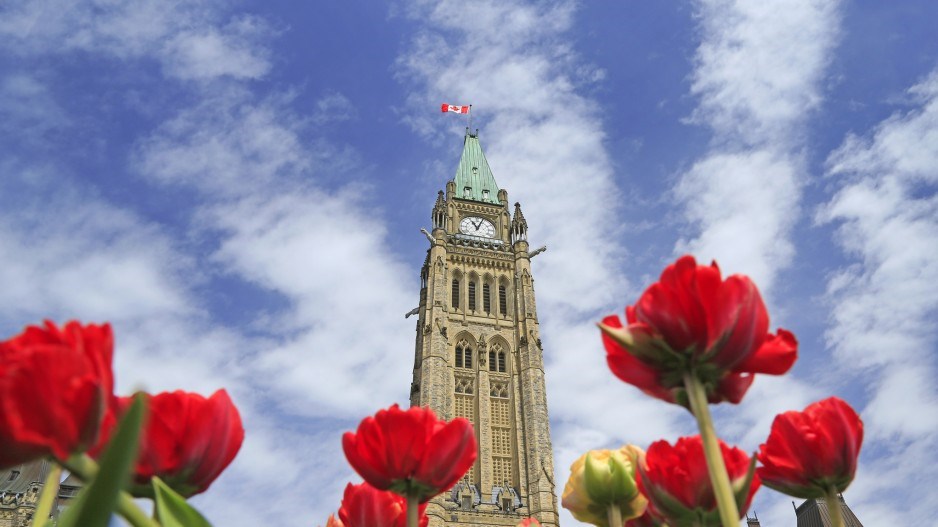While the COVID-19 pandemic and lockdown have caused most numbers - job figures, economic indicators, stock market index, etc. - to slide, there is one number that appears to be on the rise.
According to the spring update to public relations firm Edelman’s annual Trust Barometer report released this week, Canadians’ trust for government has spiked dramatically during the COVID pandemic, with 70% of the poll’s respondents (1,200 members - 18 and older - from the general population) saying they trust government during the outbreak.
That figure places government - which ranked last among four institutional categories (behind NGOs, businesses, and the media) as recently as last year - now firmly as the most trusted institutional category in the survey, and with a result 20 percentage points higher than what was reported in January by the same Trust Barometer report.
“What we have seen is that our institutions have been incredibly tested during this pandemic, but our latest results indicate that Canadian institutions are in fact rising to the occasion,” said Lisa Kimmel, chair and CEO of Edelman’s operations in Canada and Latin America. “… Clearly, our political leaders are doing something right in fighting this pandemic.”
The change is striking especially considering that the Trust Barometer found in 2019 a highly divided Canada, embroiled in intensifying partisan tensions, a growing East-West gap and economic/social challenges on several fronts. Despite Trust Barometer results typically showing a rise in public trust in government during election years, last year saw the trust index barely hover above 50% - an indication of trouble, Kimmel said.
“We’ve been doing the Trust Barometer for 20 years, and what we’ve always seen is that, when there is a federal election, we typically see a significant increase in trust in our institutions - particularly in government,” she said. “Last year, we didn’t see that despite having a fall federal election, and the mass population was actually distrusting of government… The lack of trust in insitutions really signified the fact that we, as Canadians, were concerned about the ability of our institutions to actually lead us into the future.”
Edelman analysts say that the reversal in trust trends - despite the presence of COVID which heightens uncertainty like never before - could be explained by a number of reasons. First, leaders like Prime Minister Justin Trudeau’s daily press conferences maintained a connection from the highest level of decision-making in Ottawa with the masses.
“Stress and anxiety is a global situation right now, and that’s why the model of leadership is important to evaluate,” said Edelman Vancouver general manager Rhea Dubois-Phillips. “Visibility and accountability is of great importance at this point.”
The second reason, Kimmel noted, is that partisan and federal/provincial squabbles have largely been toned down as a united front has been (generally) presented when it comes to fighting COVID-19. But the most important reason, Dubois-Phillips said, may be that both Ottawa and the provinces have deferred decision-making to health officers like Theresa Tam and Bonnie Henry, and basing the policy decisions on science has resulted in mass buy-in.
“One of the main reasons why we got such universal buy-in was because the government deferred to science,” she said. “They could prove that, although these policies were extremely severe and limiting, they were rooted in scientific modelling that could be shared with Canadians. We could see that if we didn’t do this, we would have extremely negative consequences; and by putting the scientists out front, we can understand the importance of the sacrifices we are making.”
For instance, the Edelman poll found 73% of the respondents agreeing with the government’s choice to restrict people’s movements - despite reports of protestors challenging the decision often flooding news reports and social media channels.
“While there are some loud voices that we’re starting to see questioning the lockdown, especially on social media, those loud voices are clearly not the sentiment of the general population,” Kimmel said, but adding that there is a privacy limit to Canadian public’s trust - the poll numbers show that only 54% would trust government in using personal health and location data tracking to fight COVID-19.
There also remains a concern about the trust gap between the “informed public” - college-educated people in the top 25% of the income bracket - and the mass population, with the latter group’s trust for public institutions at 11 percentage points lower than that of the former group. While that number has shrunk since last year (when the gap was 20 percentage points), it remains an indication that Canadians feel the system is inequitable in some ways, Kimmel said.




